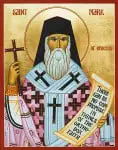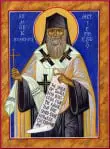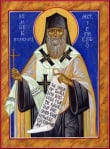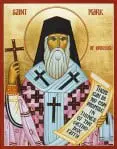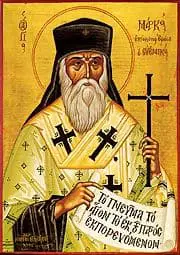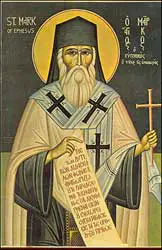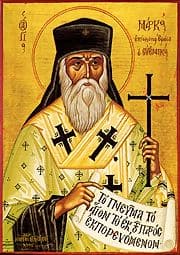St. Mark of Ephesus: ‘But if,’ they say, ‘we had devised some middle ground between the dogmas . . .
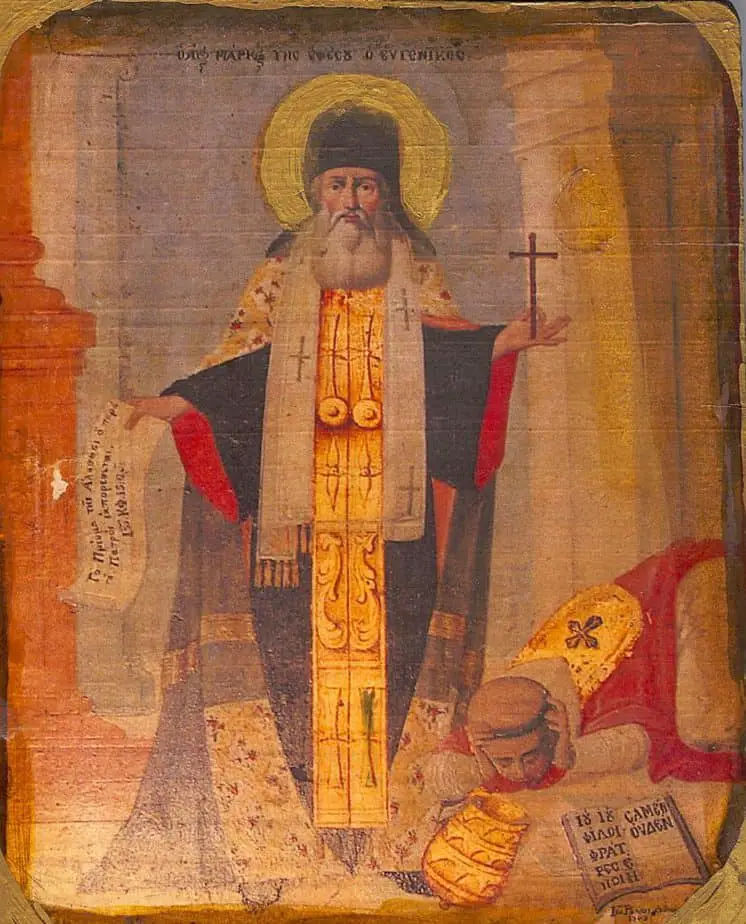
“‘But if,’ they say, ‘we had devised some middle ground between the dogmas (of the Papists and the Orthodox), then thanks to this we would have united with them and accomplished our business superbly, without at all having been forced to say anything except what corresponds to custom and has been handed down (by the Fathers).’ This is precisely the means by which many, from of old, have been deceived and persuaded to follow those who have led them off the steep precipice of impiety; believing that there is some middle ground between the two teachings that can reconcile obvious contradictions, they have been exposed to peril.”
+ St. Mark of Ephesus, “Encyclical Letter, July 1440”
From Orthodox Word , March-April-May, 1967
